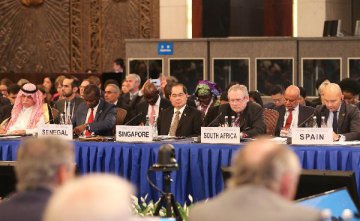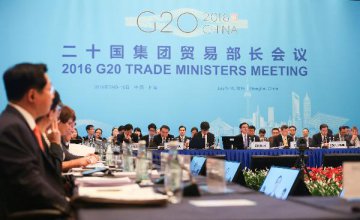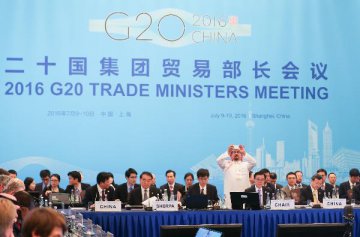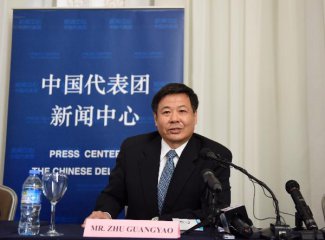
The G20 Hangzhou summit saw a series of agreements reached that would facilitate sustainable and inclusive economic growth. However, words are easy, like the wind; concrete action is needed to deliver on the commitments. Leaders at the summit, which concluded Sept. 5, adopted a communique on development direction; targets and measures for cooperation; and 28 outcome documents on various issues.
Among the documents, a plan on the implementation of the 2030 Agenda for Sustainable Development was ratified. The agenda, facilitated by the United Nations last year, outlined 17 sustainable development goals (SDGs) for green growth and poverty eradication.
Actions speak louder than words. At the Hangzhou summit, China and the United States, the world's two largest economies, took the lead and formally signed the Paris climate change agreement. On Monday, local time, Chinese Premier Li Keqiang presided over a round-table meeting on SDGs at the UN Headquarters in New York and released China's detailed measures for implementing the 2030 Agenda.
Li said China will continue to promote South-South cooperation, increase investment and share Chinese experiences. He also promised China's annual total donation to UN agencies on development in 2020 will be 100 million U.S. dollars more than it donated in 2015. "China is an eminent player in global development; in particular China is a leader in the implementation of the Agenda, emphasizing country-led strategies that are supported by multi stake-holder partnerships," said Jim Yong Kim, president of the World Bank.
To revitalize the growth engines, leaders at the Hangzhou summit also agreed to formulate a strategy for global trade growth and draft the guiding principles for global investment policy-making, rejecting trade protectionism. "The direction and course has been set, everything now hinges on how determined countries are to push the policies through," said Liu Zhiqin, an financial analyst from Renmin University of China.
Liu said that protectionism will remain a major block as G20 guideline clauses are non-binding, and some countries may prioritize their own short-term interests over that of the wider international economy.
Earlier last month, China and the United States held their 28th round of bilateral investment treaty talks in Beijing, with the goal of establishing a non-discriminatory, transparent and open investment environment.
The Chinese government recently announced plans to set up seven new free trade zones. In addition, the top legislature has revised four laws to ease restrictions on overseas investment. As leaders of various countries agreed on innovative and inclusive growth, more concrete measures should be taken to strengthen technological cooperation and help the less developed countries.
In the face of a weak global economic recovery, all countries need to unite with trust and sincerity and take concerted actions to turn growth prospects into reality.
























Latest comments